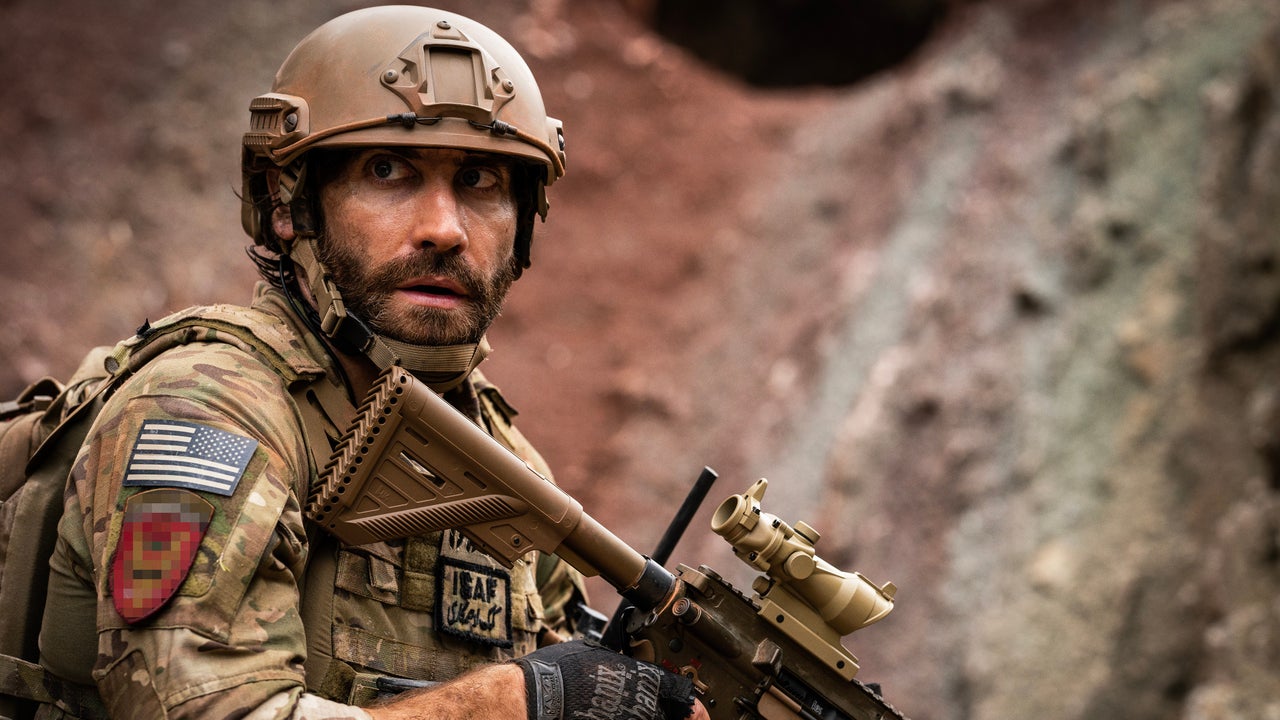The Covenant opens in theaters on April 21, 2023.
Guy Ritchie’s best known for his energetic and witty heist thrillers that zoom on by — which does not describe The Covenant. As a look back at America’s occupation in Afghanistan after 9/11, Ritchie and his co-writers (Ivan Atkinson, Marn Davies) try their hardest to fight against becoming pro-military propaganda, and their well-meaning intentions spotlight international allies. Movies like American Sniper or Lone Survivor are harrowing accounts that bleed red, white, and blue jingoism, but The Covenant is more about revealing the consequences of the U.S.’s Afghanistan operations now that we’ve pulled out our troops. The problem is those messages become tangled in a tired arc that still feels like a story told by Uncle Sam, and it runs way longer than the otherwise-overseas story can sustain.
Jake Gyllenhaal stars as Sergeant John Kinley, leader of an elite squad that tracks down and destroys Taliban weapons outposts – but The Covenant is not always a rousing action spectacle about gunfire and explosions. Dar Salim plays Sgt. Kinley’s interpreter Ahmed, a position that employs multilingual locals with the promise of travel visas out of Afghanistan afterward. Gyllenhaal and Salim strike a quick chemistry as their characters sniff out Taliban hideouts, shrugging off outdated tendencies to only show people who look like Ahmed as villains in these stories. Gyllenhaal’s journey still features monologues that lean into American superiority, but it’s through both co-stars’ devotion to each other as brothers in arms that dramatic survival instincts shine through.
The villain of The Covenant is its runtime, clocking in just over two hours with a whole lot of fat left on the steak that feels like it should’ve been trimmed. Ritchie jams two objectives into the span of one movie, and by the time we’ve journeyed alongside Ahmed’s valiant heroism dragging an injured Kinley over blistering Afghan deserts, and Kinley’s PTSD mixes with survivor’s guilt back on his California home turf, there’s still too much movie left because there’s another whole rescue mission to go on.
“
Ahmed’s efforts are long and arduous, but Ritchie struggles to help us not feel that weight as his film trudges forward. There’s an imbalance between both tactical escape situations, despite their equal importance. Given how the first two-thirds are so exhausting, Kinley’s return mission has to work that much harder to keep our attention.
What Ritchie and company get right about their story is showcasing Ahmed and other Afghanis who denounce the Taliban in their own country. The Covenant tries its best to be a story about those interpreters who were promised protection by American forces, only to be abandoned after our troops left in 2021 and Taliban ranks took back national control. Unfortunately, that focus gets blurry between Kinley’s ability to make Ahmed’s safety about himself – waking up in the middle of the night to rant to his wife about his burden – or an ending that becomes vaguely pro-war by accident. I genuinely believe Ritchie’s cause for The Covenant is noble as it allows Ahmed to be a savior, but not even Gyllenhaal’s acting ability can save Kinley’s ineffective wallowing during a bloated midsection that belabors the sergeant’s misplaced guilt.
The Covenant ultimately tries to do too much as Ritchie leans on old habits, attempting to characterize Kinley’s platoon members one by one before the inevitable downsizing of two main characters happens. In a movie about Kinley and Ahmed’s bond, a lot of time is spent establishing elements that lack intended payoffs in later scenes. The Covenant is best whenever Kinley and Ahmed are alone, weathering insurmountable odds, fleeing from Taliban hunters with weapons free. In fact, the movie is successful in these moments – more than expected. The camaraderie between Gyllenhaal and Salim transcends cultures, taking a stance on war stories that don’t peg entire countries as enemies. They’re the reason The Covenant doesn’t capsize by the end, even if Ritchie eventually indulges bad habits learned from other contemporary American war stories that make it all about glory.
